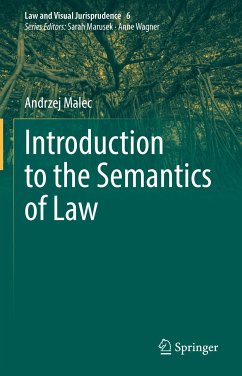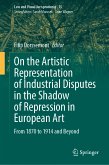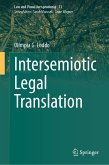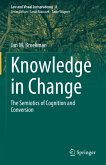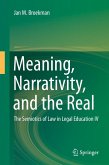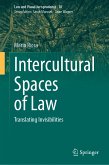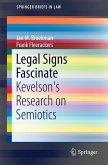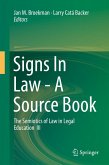This book offers an introduction to the language of law from the perspective of logical semantics. As a logical tool, Boguslaw Wolniewicz's formal ontology of situations is adapted. The central issue addressed is the meaning of normative statements, primarily legal norms.
The main outcome of the book consists in explications of several legal notions (including legal events, legal acts and legal rules) in terms of the formal ontology of situations. In addition, the book concludes that legal norms are sentences in a logical sense, so some are true, while others are false, and that their logical value does not depend on whether or not they were adopted in the law-making process. Lastly, the book contends that there are semantic relations between orders that are similar to entailment, contradiction, opposition, and sub-opposition, despite the fact that orders are not sentences in a logical sense, i.e., they are neither true nor false.
The book also presents some original Wittgenstein-style deontic logics built on the first order logic. The formal results are applied to selected problems in the theory of law, including the problem of the possibility of algorithmic application of legal norms.
Dieser Download kann aus rechtlichen Gründen nur mit Rechnungsadresse in A, B, BG, CY, CZ, D, DK, EW, E, FIN, F, GR, HR, H, IRL, I, LT, L, LR, M, NL, PL, P, R, S, SLO, SK ausgeliefert werden.
Es gelten unsere Allgemeinen Geschäftsbedingungen: www.buecher.de/agb
Impressum
www.buecher.de ist ein Internetauftritt der buecher.de internetstores GmbH
Geschäftsführung: Monica Sawhney | Roland Kölbl | Günter Hilger
Sitz der Gesellschaft: Batheyer Straße 115 - 117, 58099 Hagen
Postanschrift: Bürgermeister-Wegele-Str. 12, 86167 Augsburg
Amtsgericht Hagen HRB 13257
Steuernummer: 321/5800/1497
USt-IdNr: DE450055826
Bitte wählen Sie Ihr Anliegen aus.
Rechnungen
Retourenschein anfordern
Bestellstatus
Storno

